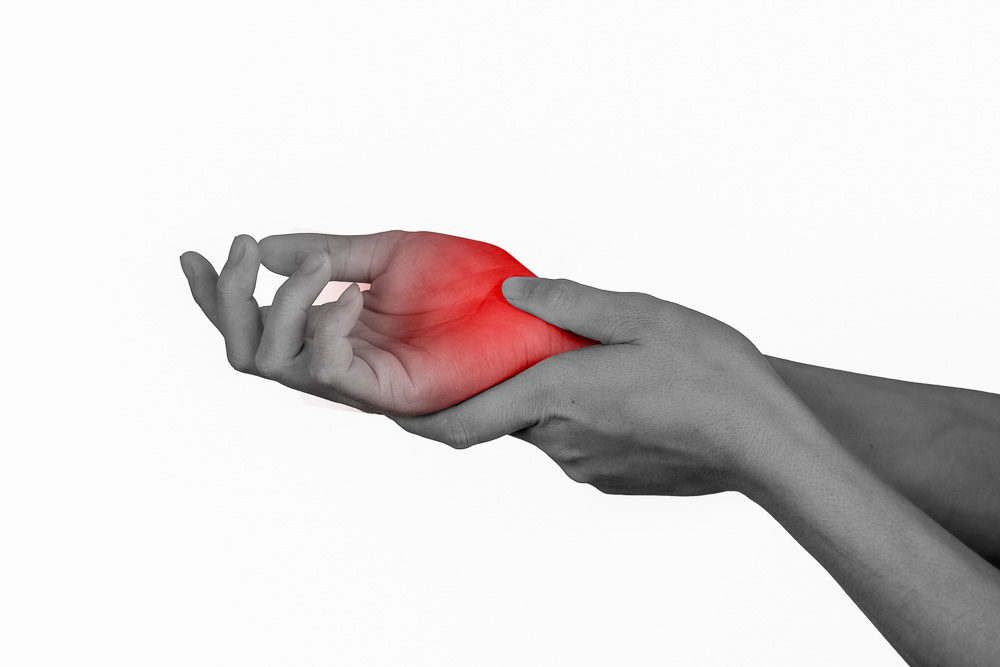Peripheral neuropathy occurs when damage takes place to the nerves that are located outside of the brain and spine. Our peripheral nervous system transports messages from these areas to the rest of our body. When these messages cannot be completed, we can notice a variety of issues. Damage can occur from a number of situations, such as infection, exposure to toxins, injury, diabetes and hereditary factors. The severity of symptoms can vary, but usually include some of the following ailments that we’re about to talk about. Peripheral neuropathy symptoms can impact the digestive system, circulatory system, and other areas of the body.
How is Peripheral Neuropathy Diagnosed?
There are a number of diagnostic tests that can be used to accurately diagnose peripheral neuropathy. This can include a series of blood tests (metabolic panels and glucose testing), X-rays, CT scans (to diagnose a damaged disk in your neck or back), nerve conduction tests, sensory exams, nerve biopsy and an autonomic reflex screening. It’s common for a doctor to try and rule out a number of conditions in order to come to the determination that peripheral neuropathy is to blame. The goal is to try and find a physical issue that could be causing damage to the nerves. If this isn’t present, other methods may be used to rule out other conditions that can cause similar symptoms.
 Numbness and Sensory Damage
Numbness and Sensory Damage
If you have peripheral neuropathy that is affecting your sensory nerves, you may experience numbness in your hands and feet. As your condition worsens, this numbness can progress to your arms and legs. This symptom can put you at a greater risk of injuring yourself due to the inability to feel cold or heat accurately. If you burn yourself or damage your skin, this can lead to serious infection.
Approximately thirty percent of peripheral neuropathy cases are caused by diabetes. Diabetics are encouraged to frequently check their feet and skin for any damage that they may not know is there because they can’t feel it. Preventing infection is incredibly important for these patients.
Sensory Nerve Damage Resulting in Pain
An intense burning pain is common in about thirty to sixty percent of neuropathy patients. When the nerves aren’t functioning as they should be, it’s common for burning to exist instead of numbness. It’s often a very unpleasant and serious situation that can severely impact a person’s quality of life. Some people explain their frequent pain as feeling like a pins and needles experience. Some feel like their skin should be hot to the touch, while it is not. A tingling or itching feeling is common as well.
Sensitive Skin
Sensory nerve damage can make you feel like your skin is very sensitive to the touch. Even letting the wind blow on your skin can cause discomfort. This tenderness can be chronic, which compromises the quality of daily life for many peripheral neuropathy patients. This sensitivity can sometimes cause people to frequently scratch or rub at the skin, causing wounds that can become infected if left untreated.
Muscle Weakness
Damage to your motor nerves can result in muscle weakness. This can make it difficult to walk safely, resulting in feeling uncoordinated. Some patients may be at a higher risk of falling. Partial paralysis can be present in some patients, and increased weakness can occur over time.
Feeling Lightheaded or Dizzy
Damage to your autonomic nerves can make you feel like you’re dizzy or lightheaded. Your blood pressure may be low, putting you at risk of passing out. It’s also common for this kind of damage to cause bowel issues like constipation or diarrhea. Decrease bladder control and sexual dysfunction are also common.
 Managing Peripheral Neuropathy
Managing Peripheral Neuropathy
It’s important that you’re working with an experienced neurologist and primary care physician that can help you manage your condition properly. This is the best way to manage your symptoms so you can lead as normal of a life as possible. Unfortunately, many people with peripheral neuropathy are also dealing with other health conditions like arthritis or diabetes.
You’ll usually be given a diet to follow that will help to improve nerve function and decrease inflammation in the body. The right doctor will give you a full metabolic plan based on your type of neuropathy. Avoid drinking alcohol, which can worsen symptoms of peripheral neuropathy.
Regular physical activity may be advised, but you’ll need to stick to a set of exercises that are safe for you to perform with the symptoms that you’re experiencing regularly. A variety of active stretches and exercises can help keep your nervous system regulated.
There are other alternative treatments that you can look into that can help deal with your peripheral neuropathy or the specific symptoms that you’re experiencing. This can include acupuncture and chiropractic adjustments. Just make sure that you’re seeking assistance for the issues that you’re experiencing. It’s not necessary to suffer through pain or discomfort. There are plenty of options available that can help.
For more information on treatments for your peripheral neuropathy, you can reach out to Apex Chiropractic. A four-prong approach to treatment has resulted in a 97% success rate among patients in the Broomfield, Boulder and Weld counties of Colorado. To book an appointment, or give us a call at (720) 328-1790.

Ready to See the Best Chiropractor in Louisville, CO?
Apex Chiropractic believes in thriving through life, not suffering in it. We believe that the activities that we want to partake in do not only desire but are necessary, just as necessary as our daily activities. In order to thrive in life and not suffer, we have to be completely in tune with our bodies. Schedule your appointment with us, today.
Like this article? Spread the word!
Related Posts
June 29, 2023
The Potential Mechanism of COVID Vaccine-Induced Peripheral Neuropathy: Numbness and Tingling in the Hands and Feet
Discover the potential mechanism behind COVID vaccine-induced peripheral neuropathy and…
June 9, 2023
Diabetic Neuropathy: Understanding the Connection Between Diabetes and Nerve Damage and How Chiropractic Care Can Help
Explore the connection between diabetes and nerve damage in our informative blog on…
April 10, 2023
Guide to Complex Regional Pain Syndrome
Complex regional pain syndrome causes substantial pain that interferes with completing…





